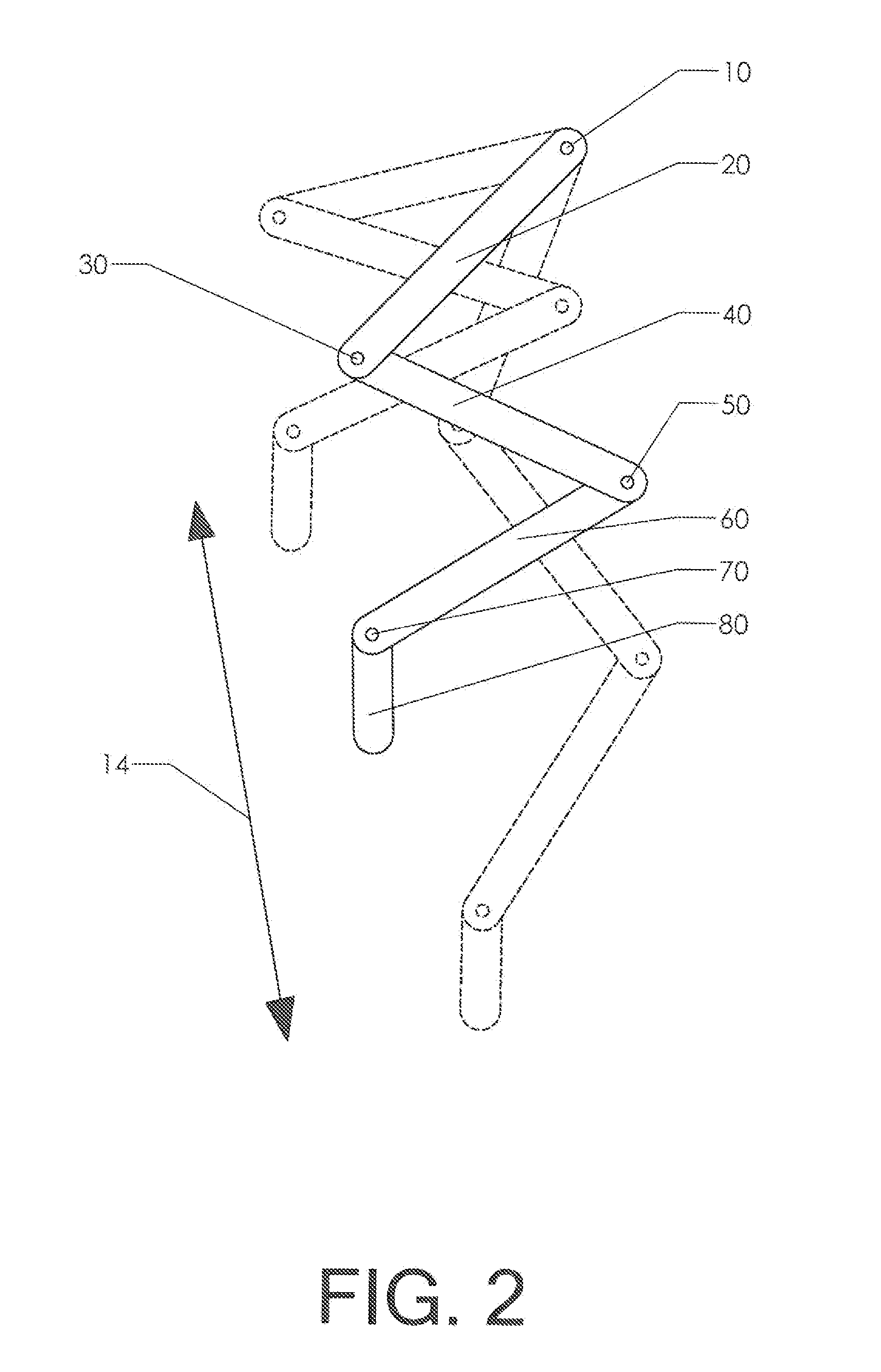Fast Runner Limb Articulation System
a limb articulation and fast runner technology, applied in the field of robotics, can solve the problems of limiting the speed of the actuator, the significant limitation of the actuator velocity, and the inability of the prior art walking robot to achieve fast speeds, and achieve the effect of minimizing the use of energy
- Summary
- Abstract
- Description
- Claims
- Application Information
AI Technical Summary
Benefits of technology
Problems solved by technology
Method used
Image
Examples
Embodiment Construction
[0033]The resonance characteristics of a multi-link limb structure are best understood by studying its basic components. FIG. 1 shows a limb having four links. Thigh 20 pivots about hip joint 10. Calf 40 is pivotally attached to thigh 20 at knee joint 30. Foot 60 is pivotally connected to calf 40 at ankle joint 50. Finally, phalanx 80 is pivotally connected to foot 60 at phalanx joint 70.
[0034]In the absence of other influences, gravity will pull all four links downward and they will simply hang vertically. Elastic connections are preferably therefore made between the links so that a non-aligned “resting state” is created. The position shown as a solid line in FIG. 1 is the resting state of the assembly. If an actuator is used to pivot thigh 20 about hip joint 10, a pendulum motion will result. The assembly will tend to pivot clockwise and counterclockwise in the way a pendulum pivots. This swinging arc is shown as pendulum oscillation trajectory 12. The phantom lines show alternate...
PUM
 Login to View More
Login to View More Abstract
Description
Claims
Application Information
 Login to View More
Login to View More - R&D
- Intellectual Property
- Life Sciences
- Materials
- Tech Scout
- Unparalleled Data Quality
- Higher Quality Content
- 60% Fewer Hallucinations
Browse by: Latest US Patents, China's latest patents, Technical Efficacy Thesaurus, Application Domain, Technology Topic, Popular Technical Reports.
© 2025 PatSnap. All rights reserved.Legal|Privacy policy|Modern Slavery Act Transparency Statement|Sitemap|About US| Contact US: help@patsnap.com



